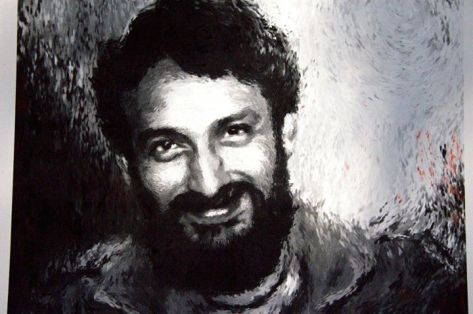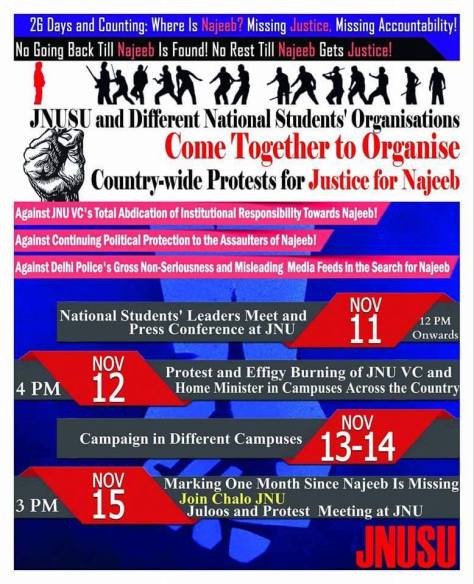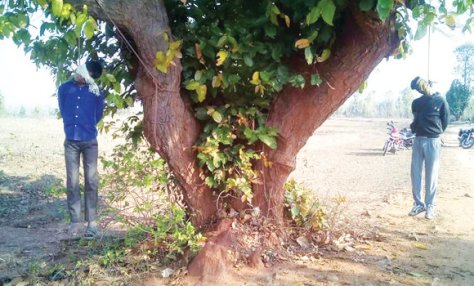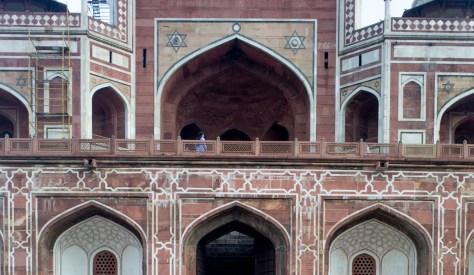अतिथि post: लखविन्दर
मारूति-सुजुकि मज़दूरों को उम्र कैद व अन्य नाजायज सजाओं के गुड़गांव अदालत के फैसले को घोर पूँजीपरस्त, पूरे मज़दूर वर्ग व मेहनतकश जनता पर बड़ा हमला मानते हुए पंजाब के मज़दूरों, किसानों, नौजवानों, छात्रों, सरकारी मुलाजिमों, जनवादी अधिकारों के पक्ष में आवाज उठाने वाले बुद्धिजीवियों व अन्य नागरिकों के संगठनों ने व्यापक स्तर पर आवाज़ बुलन्द की है। 4 और 5 अप्रैल को देश व्यापी प्रदर्शनों में पंजाब के जनसंगठनों ने भी व्यापक शमूलियत की है। विभिन्न संगठनों ने व्यापक स्तर पर पर्चा वितरण किया, फेसबुक, वट्सएप पर प्रचार मुहिम चलाई। अखबारों, सोशल मीडिया आदि से इन गतिविधियों की कुछ जानकारी प्राप्त हुई है।
5 अप्रैल को लुधियाना में लघु सचिवालय पर डीसी कार्यालय पर टेक्सटाईल-हौजऱी कामगार यूनियन, मोल्डर एण्ड स्टील वर्कर्ज यूनियनें, मज़दूर अधिकार संघर्ष अभियान, नौजवान भारत सभा, पी.एस.यू., एटक, सीटू, एस.एस.ए.-रमसा यूनियन, पेंडू मज़दूर यूनियन, डी.टी.एफ., रेलवे पेन्शनर्ज वेल्फेयर ऐसोसिएशन, जमहूरी अधिकार सभा, आँगनवाड़ी मिड डे मील आशा वर्कर्ज यूनियन, कामागाटा मारू यादगारी कमेटी, स्त्री मज़दूर संगठन, कारखाना मज़दूर यूनियन, पेंडू मज़दूर यूनियन (मशाल), कुल हिन्द निर्माण मज़दूर यूनियन आदि संगठनों के नेतृत्व में जोरदार प्रदर्शन हुआ और राष्ट्रपति के नाम माँग पत्र सौंपा गया जिसमें माँग की गई कि सभी मारूति-सुजुकि के सभी मज़दूरों को बिना शर्त रिहा किया जाए. उनपर नाजायज-झूठे मुकद्दमे रद्द हो, काम से निकाले गए सभी मज़दूरों को कम्पनी में वापिस लिया जाए।

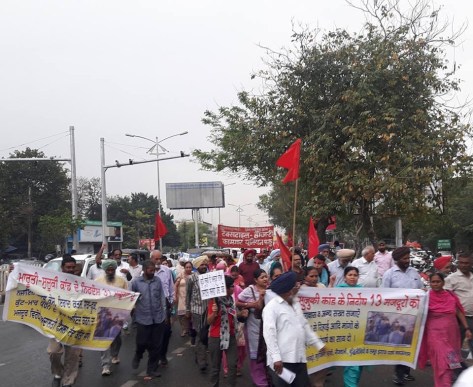


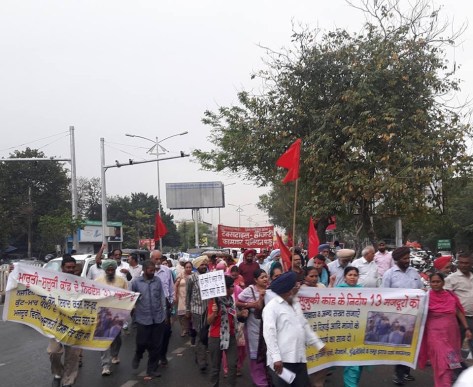
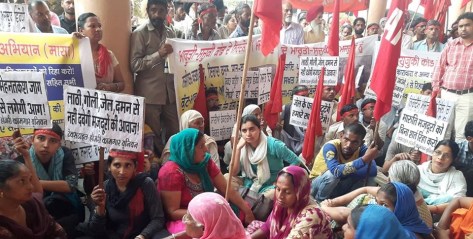

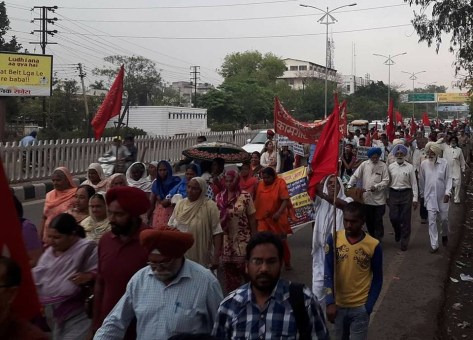
लुधियाना में 5 अप्रैल के प्रदर्शन की तैयारी के लिए हिन्दी और पंजाबी पर्चा वितरण भी किया गया जिसके जरिए लोगों को मारूति-सुजुकि मज़दूरों के संघर्ष, उनके साथ हुए अन्याय, न्यायपालिका-सरकार-पुलिस के पूँजीपरस्त और मज़दूर विरोधी-जनविरोधी चरित्र से परिचित कराया गया और प्रदर्शन में पहुँचने की अपील की गई। लुधियाना में 16 मार्च को भी बिगुल मज़ूदर दस्ता, मोल्डर एण्ड स्टील वर्कर्ज यूनियनों, मज़दूर अधिकार संघर्ष अभियान, आदि संगठनों द्वारा रोषपूर्ण प्रदर्शन किया गया था।
जमहूरी अधिकार सभा, पंजाब द्वारा बठिण्डा व संगरूर में 4 अप्रैल, बरनाला में 8 अप्रैल को, लुधियाना में 1 अप्रैल को पिछले दिनों देश की अदालतों द्वारा हुए तीन जनविरोधी फैसलों मारूति-सुजुकि के मज़दूरों को उम्र कैद व अन्य सजाएँ, जनवादी अधिकारों के लिए आवाज उठाने वाले दिल्ली विश्वविद्यालय के प्रो. साईबाबा सहित अन्य बेगुनाह लोगों को उम्र कैद की सजाओं, और हिन्दुत्वी आतन्कवादी असीमानन्द को बरी करने के मुद्दों पर कन्वेंशनें, सेमिनार, प्रदर्शन, मीटिंगें आदि आयोजित किए गए जिनमें अन्य जनसंगठनों नें भी भागीदारी की। जमहूरी अधिकार सभा ने इन मुद्दों पर एक पर्चा भी प्रकाशित किया जो बड़े स्तर पर पंजाब में बाँटा गया।
पटियाला में 4 अप्रैल को मज़दूरों, छात्रों, किसानों के विभिन्न संगठनों द्वारा रोष प्रदर्शन किया गया। बिजली मुलाजिमों ने भी टेक्नीकल सर्विसज़ यूनियन के नेतृत्व में 4 अप्रैल को अनेकों जगहों पर प्रदर्शन किए। लहरा थरमल पलांट के ठेका मज़दूरों ने 4 अप्रैल को रोष रैली के जरिए मारूति-सुजुकि मज़दूरों के साथ एकजुटता जाहिर करते हुए उनके समर्थन में आवाज़ उठाई। मारूति-सुजुकि मज़दूरों के समर्थन में पंजाब में उठी आवाज़ की कड़ी में लोक मोर्चा पंजाब ने 8 अप्रैल को लम्बी (जिला बठिण्डा) में रैली और रोष प्रदर्शन किया। लम्बी में आर.एम.पी. चिकित्सकों द्वारा भी प्रदर्शन किया गया। अनेकों गाँवों में मज़दूर-किसान-नौजवान संगठनों ने अर्थी फूँक प्रदर्शन भी किए हैं। आप्रेशन ग्रीन हण्ट विरोधी जमहूरी फ्रण्ट, पंजाब ने मोगा में 12 अप्रैल को कान्फ्रेंस और प्रदर्शन आयोजित किया।
मारूति-सुजुकि मज़दूरों का जिस स्तर पर कम्पनी में शोषण हो रहा था और इसके खिलाफ़ उठी आवाज़ को जिस घृणित बर्बर ढंग से कुचलने की कोशिश की गई है उसके खिलाफ़ आवाज़ उठनी स्वाभाविक और लाजिमी थी। पंजाब के इंसाफपसंद लोगों का हक, सच, इंसाफ के लिए जुझारू संघर्षों का पुराना और शानदार इतिहास रहा है। अधिकारों के जूझ रहे मारूति-सुजुकि मज़दूरों का साथ वे हमेशा निभाते रहेंगे।
पूरे देश में मज़दूरों का देशी-विदेशी पूँजीपतियों द्वारा भयानक शोषण हो रहा है। जब मज़दूर आवाज़ उठाते हैं तो पूँजीपति और उनका सेवादार पूरा सरकारी तंत्र दमन के लिए टूट पड़ता है। ऐसा ही मारूति-सुजुकी, मानेसर (जिला गुडग़ांव, हरियाणा) के संघर्षरत
मज़दूरों के साथ हुआ है। एक बहुत बड़ी साजिश के तहत कत्ल, इरादा कत्ल जैसे पूरी तरह झूठे केसों में फँसाकर पहले तो 148 मज़दूरों को चार वर्ष से अधिक समय तक, बिना जमानत दिए, जेल में बन्द रखा गया और अब गुडग़ाँव की अदालत ने नाज़ायज ढंग से 13 मज़दूरों को उम्र कैद और चार को 5-5 वर्ष की कैद की कठोर सजा सुनाई है। 14 अन्य मज़दूरों को चार-चार साल की सजा सुनाई गई है लेकिन क्योंकि वे पहले ही लगभग साढे वर्ष जेल में रह चुके हैं इसलिए उन्हें रिहा कर दिया गया है। 117 मज़दूरों को, जिन्हें बाकी मज़दूरों के साथ इतने सालों तक जेलों में ठूँस कर रखा गया उन्हें बरी करना पड़ा है। सबूत तो बाकी मज़दूरों के खिलाफ़ भी नहीं है लेकिन फिर भी उन्हें जेल में बन्द रखने का बर्बर हुक्म सुनाया गया है।
जापानी कम्पनी मारूति-सुजुकि के खिलाफ़ मज़दूरों ने श्रम अधिकारों के उलण्घन, कमरतोड़ मेहनत करवाने, कम वेतन, लंच, चाय, आदि की ब्रेक के बाद एक मिनट के देरी के लिए भी आधे दिन का वेतन काटने, छुट्टी करने के लिए हजारों रूपए वेतन से काटने जैसे भारी जुर्माने लगाने, आदि के खिलाफ़ कुछ वर्ष पहले संघर्ष का बिगुल बजाया था। कम्पनी की दलाल तथाकथित मज़दूर यूनियन की जगह उन्होंने अपनी यूनियन बनाई। नई यूनियन के पंजीकरण में कम्पनी ने ढेरों रूकावटें खड़ी कीं। उस समय हरियाणा में कांग्रेस की सरकार के मुख्यमंत्री भूपेन्द्र हुड्डा ने सरेआम पूँजीपतियों की दलाली का प्रदर्शन करते हुए कहा था कि कारखाने में नई यूनियन नहीं बनने दी जाएगी। मज़दूरों ने लम्बी-लम्बी हड़तालें लड़ीं, अपने अथक संघर्ष से यूनियन का पंजीकरण कराके जीत हासिल की। मज़दूर संघर्ष कम्पनी और समूचे सरकारी तंत्र की आँख की किरकरी बना हुआ था। संघर्ष कुचलने के लिए साजिश रची गई। 18 जुलाई 2012 को कारखाने के भीतर पुलीस की हाजिरी में सैंकड़ों हथियारबन्द गुण्डों से मज़दूरों पर हमला करवाया गया। बड़ी संख्या मज़दूर जख्मी हुए। कारखाने में आग लगवा दी गई। एक मज़दूर पक्षधर मैनेजर की इस दौरान मौत हो गई। साजिश के तहत इसका दोष मज़दूरों पर मढ़ दिया गया। बड़े स्तर पर गिरफतारियाँ की गईं, यातनाएँ दी गईं। ढाई हज़ार मज़दूरों को गैरकानूनी रूप से नौकरी से निकाल दिया गया। 148 मज़दूरों को जेल में ठूँस दिया गया। जमानत की अर्जी पर पंजाब-हरियाणा हाईकोर्ट ने टिप्पणी की कि अगर जमानत दी गई तो भारत में विदेशी पूँजी का निवेश रुकेगा। जिन 13 मज़दूरों को उम्र कैद की सजा सुनाई गई है उनमें 12 लोग यूनियन नेतृत्व का हिस्सा थे। इससे इस झूठे मुकद्दमे का मकसद समझना मुश्किल नहीं है।
अदालत का फैसला कितना अन्यायपूर्ण है इसका अन्दाजा लगाने के लिए सिर्फ कुछ तथ्य ही काफ़ी हैं। कम्पनी में चप्पे-चप्पे पर कैमरे लगे हुए हैं लेकिन अदालत में कहा कि उसके पास 18 जुलाई काण्ड की कोई वीडियो है ही नहीं! कम्पनी के गवाहों के ब्यानों से साफ पता चल रहा था कि झूठ बोल रहे हैं। वो तो मज़दूरों को पहचान तक न सके। गुण्डों व उनका साथ देने वाले मैनेजरों व अन्य स्टाफ के मैंबरों से कहीं अधिक संख्या में मज़दूर जख्मी हुए थे। पोस्ट मार्टम में पाया गया कि मैनेजर अवनीश कुमार की मौत दम घुटने से हुई है न कि जलाए जाने से जिससे साफ़ है कि यह हत्या का मामला है ही नहीं। और भी बहुत सारे तथ्य स्पष्ट तौर मज़दूरों का बेगुनाह होना साबित कर रहे थे लेकिन इन्हें अदालत ने नजरान्दाज कर मज़दूरों को ही दोषी करार दे दिया क्योंकि पूँजी निवेश को बढ़ावा जो देना है! वास्तव में मारूति-सुजुकी घटनाक्रम के जरिए लुटेरे हुक्मरानों ने ऐलान किया है कि अगर कोई लूट-शोषण के खिलाफ़ बोलेगा वो कुचला जाएगा।
ये फैसला तब आया है जब असीमानन्द और अन्य संघी आतन्कवादियों के खिलाफ ठोस सबूत होने, असीमानन्द द्वारा जुर्म कबूल कर लेने के बावजूद भी बरी कर दिया जाता है। दंगे भड़काने वाले, बेगुनाहों का कत्लेआम करने वाले न सिर्फ आज़ाद घूम रहे हैं बल्कि मुख्य मंत्री, प्रधान मंत्री जैसे पदों पर पहुँच रहे हैं !
आज देशी-विदेशी कम्पनियों, लुटेरे धन्नासेठों को खुश करने के लिए सरकारें मज़दूरों से सारे श्रम अधिकार छीन रही हैं। न्यूनतम वेतन, फण्ड, बोनस, हादसों से सुरक्षा के इंतजाम तक लागू न करने वाले पूँजीपतियों पर कोई कार्रवाई नहीं होती, उन्हें कभी जेल में नहीं ठूँसा जाता। उलटा भाजपा, कांग्रेस से लेकर तमाम पार्टियों की सरकारें कानूनी श्रम अधिकारों में मज़दूर विरोधी बदलाव करके पूँजीपतियों को मज़दूरों की बर्बर लूट की और भी खुली छूट दे रही हैं। किसानों, छात्रों, नौजवानों, आदिवासियों, सरकारी कर्मचारियों के अधिकार कुचले जा रहे हैं। भोजन, स्वास्थ्य, शिक्षा, बिजली, पानी, आदि तमाम सरकारी सहूलतें छीनी जा रही हैं। इसके खिलाफ़ उठी हर आवाज को दबाने के लिए पूरा राज्य तंत्र अत्याधिक हमलावर हो चुका है। काले कानून बनाकर एकजुट संघर्ष के जनवादी अधिकार छीने जा रहे हैं। जनपक्षधर बुद्धिजीवियों, पत्रकारों, कलाकारों तक का दमन हो रहा है, जेलों में ठूँसा जा रहा है। जन एकजुटता को तोडऩे के लिए धर्म, जाति, क्षेत्र के नाम पर बाँटने की साजिशें पहले किसी भी समय से कहीं अधिक तेज़ हो चुकी हैं। जहाँ जनता को बाँटा न सके, जहाँ लोगों का ध्यान असल मुद्दों से भटकाया न जा सके, वहाँ जेल, लाठी, गोली से कुचला जा रहा है। यही मारूति-सुजुकी मज़दूरों के साथ हुआ है। लेकिन बर्बर हुक्मरानों को दीवार पर लिखा पढ़ लेना चाहिए। इतिसाह गवाह है- जेल, लाठी, गोली, बर्बर दमन जनता की अवाज़ न कभी दबी है न कभी देबेगी।














